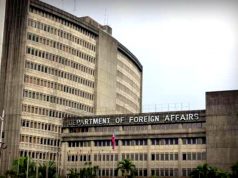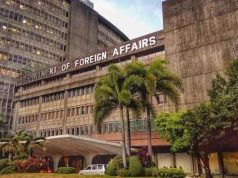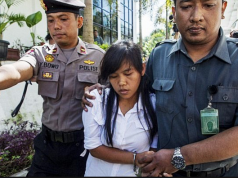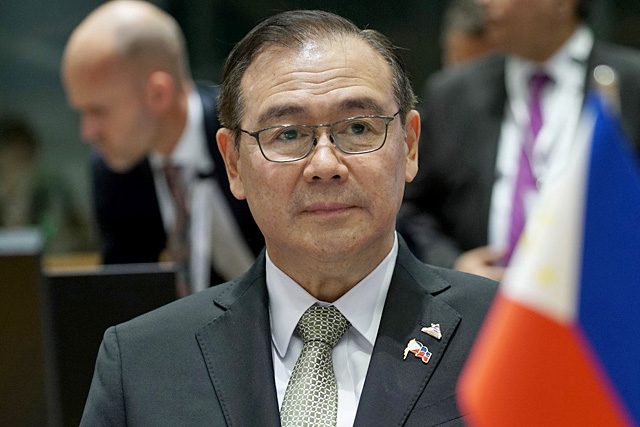
The dismissal of Foreign Affairs Secretary Teodoro Locsin Jr. of possible backing from the international community over a recent incident in the South China Sea between Chinese and Filipino vessels is a surprising view from a top diplomat.
Defense Secretary Delfin Lorenzana previously reported that a Chinese fishing vessel rammed and sank a Filipino fishing boat off Recto Bank within the Philippines’ exclusive economic zone.
The boat, manned by 22 Filipino fishermen, was anchored when the Chinese vessel hit it and left without any assistance or warning.
According to a relative of the Filipino boat’s captain, the crew was asleep when the incident happened.
“Nagulat na lang po sila dahil hatinggabi po, may ano, wasak na. ‘Yun pala nabangga na sila ng barko ng China,” Jimwel Tañedo said in an interview.
Having lost their boat, the Filipino crew were rescued by a Vietnamese fishing vessel which took them to the Armed Forces of the Philippines’ Western Command in Palawan.
Meanwhile, Malacañang called for Chinese authorities to conduct an investigation over the “inhuman” and “barbaric” deed.
Locsin also shared that he already “fired off a diplomatic protest” over the incident. On Twitter, however, his words suggested he was not willing to take the matter farther than the protest.
The DFA chief responded with vitriol and claimed that the international community can be “bought.”
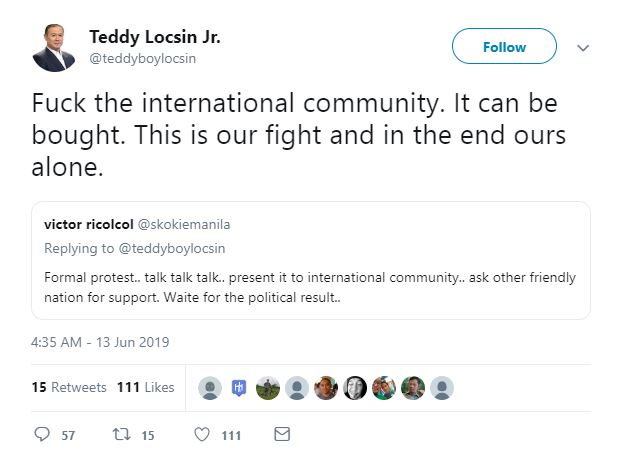
This is not the first time that Locsin spewed offensive remarks about the international community.
Last February, the top Philippine envoy caught a German journalist’s attention when he refused to apologize for President Rodrigo Duterte’s seemingly laudatory remarks to war criminal Adolf Hitler.
When Locsin was appointed as the Foreign Affairs secretary in October 2018, some Filipinos questioned his suitability for the role, observing his use of offensive language and expletives on social media.
“DFA? Well, that’s diplomacy out the window. Aanhin mo katalinuhan kung ang ugali naman ay magaspang at ang prinsipyo ay pinagbibili? Malamang hindi ito maintindihan ni Locsin… wikang Pilipino kasi,” a Twitter user wrote before.
Functions of a DFA chief: Diplomacy
The Foreign Affairs secretary is the one who supervises the department and matters relating to foreign service.
According to Executive Order 132, the top diplomat has the significant role of acting as the “primary and principal adviser of the President in the field of foreign relations,” among others.
He is the head of the agency tasked to perform some of the following functions:
- To conduct the country’s foreign relations in accordance with the policies laid down by the President;
- To maintain and develop the country’s representation with foreign governments;
- To conduct Philippine representation in the United Nations, the Association of Southeast Asian Nations and other international and regional organizations;
- To serve as the channel for matters involving foreign relations, including official communications to and from the Republic of the Philippines;
- To negotiate treaties and other agreements pursuant to instructions of the President, and in coordination, when necessary, with other government agencies;
- To foster cultural relations with other countries and protect and enhance the Philippines image abroad;
- To undertake efforts in informing the international community about the Philippines with the cooperation of other government agencies;
- To monitor and analyze events in other countries and report them, as appropriate, to the President and other government agencies;
The Department of Foreign Affairs has a fundamental role to enhance the country’s national security and protect its territorial integrity and national sovereignty.
It is also expected to increase the international understanding of Philippine culture for mutually beneficial relations with other nations.




